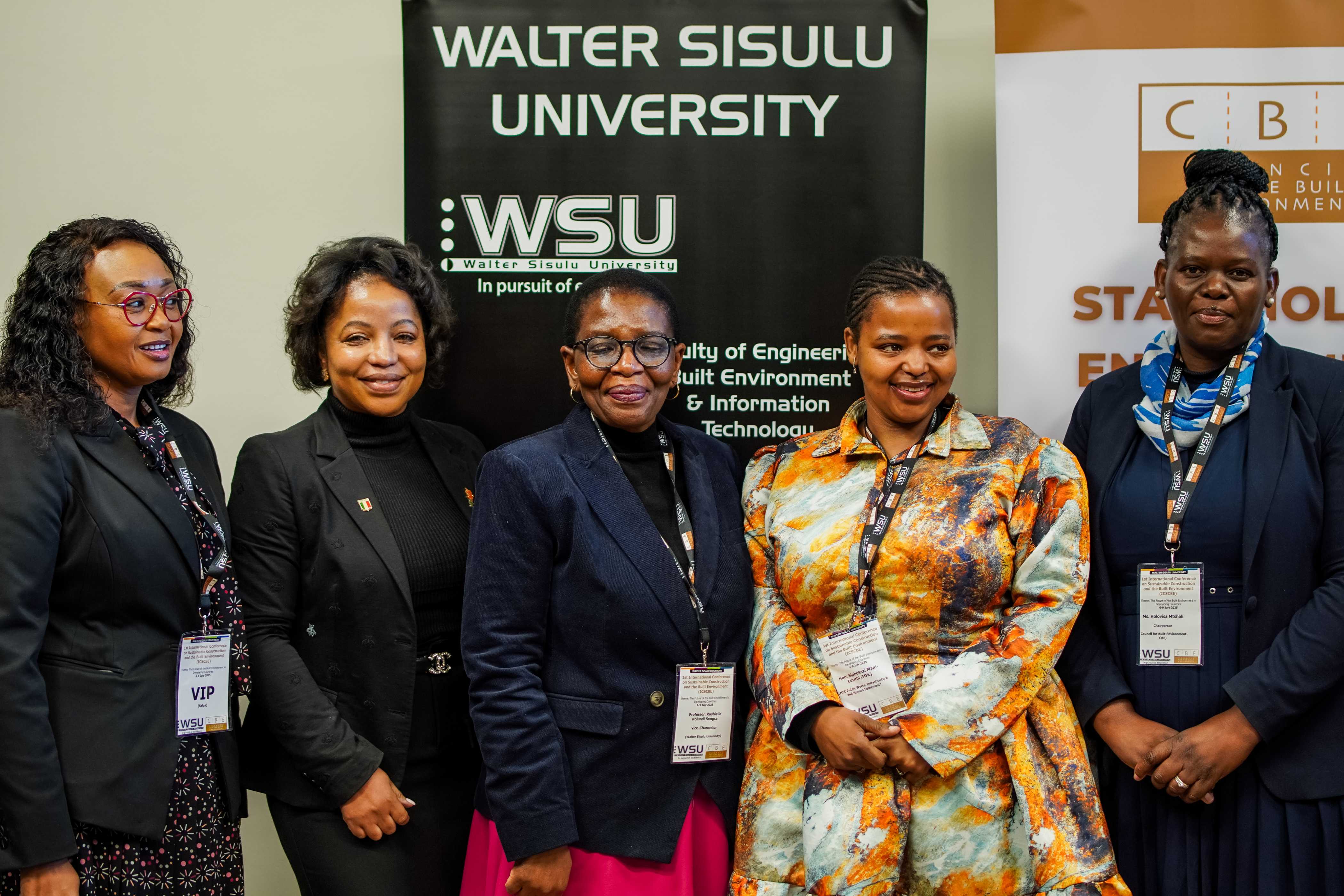FUTURE OF THE BUILT ENVIRONMENT IN DEVELOPING COUNTRIES "AN URGENT MATTER", SAYS WSU VC

Academics, government representatives, postgraduate students and industry practitioners in the built environment sector have gathered at WSU’s BCC Potsdam Site in a shared spirit of dialogue, discovery and collaboration during the opening of the first-ever Council for Built Environment/WSU International Conference on Sustainable Construction and the Built Environment (ICSCBE).
The conference, instituted and premised on the theme “The future of the Built Environment in Developing Countries”, saw participants rigorously engaging on a wide variety of topics divided into five thematic categories – Sustainable Built Environment; Engineering & Built Environment Education & Training; Quality & Safety in Engineering and Built Environment; Digitisation and emerging technologies in Engineering and BE; and Professionalism and Ethics.
WSU Vice-Chancellor, Prof Rushiella Songca, who officially launched the conference on Monday 7 July, impressed upon those in attendance the importance of the conference and its potential to find solutions, especially in light of the prevailing global challenges of climate crisis, urban expansion, resource scarcity and socioeconomic inequality.
"We gather in the spirit of hope, because together through knowledge, innovation and a shared commitment to inclusive, sustainable development, we begin to construct new paradigms and possibilities," said Songca.
She said the gathering should, among its different stakeholders, should serve, not just as a platform for scholarly exchange, but as a catalyst for real-world solutions grounded in science and shaped by societal needs and driven by sustainability.
Never one to miss a beat, Songca also highlighted the university's aspirations and steps taken towards establishing an Artificial Intelligence Centre - a project poised to be multi-disciplinary in which the Faculty of Engineering, Built Environment and IT (FEBEIT).
The Eastern Cape MEC for Public Works and Human Settlements, Siphokazi Lusithi, was also on hand to provide a provincial input and perspective, highlighting the crucial role of infrastructure in driving economic growth and creating much-needed jobs in the Eastern Cape.
Lusithi praised the conference as “historic” and “timely,” noting that it affirms the Eastern Cape’s potential as a fertile ground for intellectual innovation, research-led transformation, and collaborative development.
“This conference is a crucial platform to chart a way forward in our collective mission to transform the Eastern Cape and South Africa into a hub of construction-driven economic growth and job creation,” she said.
A significant theme in her address was the need for proactive investment in climate-resilient infrastructure and sustainable urban planning. She emphasised that developing countries like South Africa must learn to build more with less, balancing growth with environmental protection and holistic planning.
Lusithi said concerned stakeholders needed to embrace urbanization, invest in climate adaptation, support women in construction, and democratize access to land and infrastructure services.
By Thando Cezula & Yolanda Palezweni
